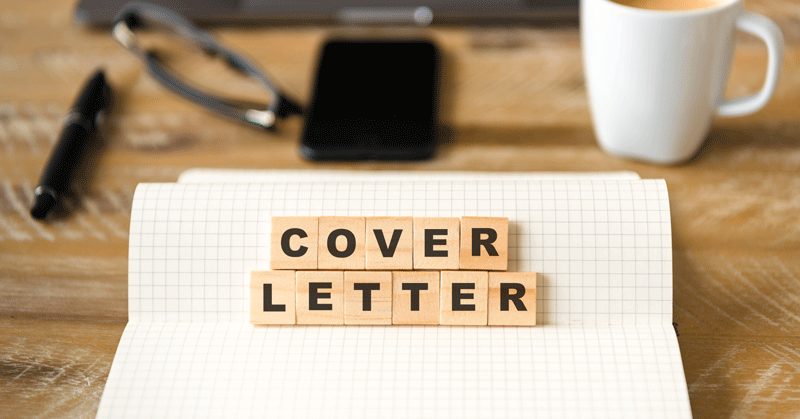Although you are no doubt proud of your excellent resume, it is not the only ingredient necessary for securing an interview with a prospective employer. One very important tool is known as a cover letter.
Often a cover letter can make more of an impression than the resume itself. First of all, a cover letter is personal. A cover letter lets you personalize your job search. It can give your reader a good sense of who you are and why you might be right for his/her job opening. It draws attention to your resume, it highlights pertinent skills, and it tells an employer how these skills might be utilized within the employer’s company. Cover letter information does not duplicate resume information; instead, it highlights particular facts and makes this information important to the reader.
Address the letter to the person who makes the hiring decisions. By finding out the exact name of the individual, you show that you took the time to directly address the letter to the appropriate person. Be sure to spell the name correctly and use the proper title. If you are responding to a job advertisement, address the letter as directed in the ad.
Your cover letter should:
• Introduce you in a way your resume cannot.
• Arouse an employer’s interest and motivate him/her to read your resume.
• Suggest what kind of communicator you are.
• Illustrate that you have an understanding of the employer’s field and perhaps specific knowledge about a company.
• Demonstrate your motivation and reasons for sending the employer your resume.
• Clarify any questions you feel might occur in the employer’s mind while he/she is reading your resume.
• Make the employer want to bring you in for an interview.
A cover letter should be used in three situations:
• When you respond to a help wanted ad you have seen in the paper or on the internet.
• Through networking, someone referred you.
• When you select an employer for whom you want to work, who has not advertised a particular opening. This is called a DIRECT MAIL campaign.
Some job hunters spend a lot of time perfecting their resume and then pay little attention to writing a good cover letter. This is a mistake! A good cover letter can give you a real edge over the hundreds of other candidates who may be applying for the same job. All cover letters have the same basic parts, but what you do with them is what is important. Think of it in terms of baking a cake. Everyone knows a basic cake recipe, but look at all the different cakes there are and how some people bake cakes that taste much better than others. What’s the difference? Good cooks know when to add a special spice or a new flavor…good job hunters know when to add something special to a cover letter. When it is complete, your cover letter should accomplish these four things:
Paragraph 1:
Your reason for the letter. Are you writing in response to an ad, or because someone you know referred you to this company, or are you writing on your own to find out about possible job openings? Specify the job applied for and mention how you found out about it.
Paragraph 2:
An explanation of why you are interested in employment with this company and a description of how your recent schooling can benefit the organization. List relevant skills relating to the job. Make reference to the enclosed resume.
Paragraph 3:
Highlight any previous job experience that may be of particular importance and draw attention to it on your resume. Attempt to convince the reader that you have special skills. Restate your interest. Remember you must sell yourself! If salary information is requested: Some ads request your salary history or salary requirements. If an ad requests this information, provide it in the third paragraph. For salary history, supply the salary range from your previous jobs, if any. If the advertisement asks for your salary requirements, provide a salary range that would be acceptable to you. By setting a range, you can avoid stating a salary that is either too high or too low for the position.
Paragraph 4:
Indicate your desire for an interview. You cannot hope to get something you have not asked for! Indicate a contact number at which you can be reached and express appreciation.
Reminders:
• Use Personal Business Letter format.
• Be sure to spell out all abbreviations.
• Use an enclosure notation.
• Be sure to sign the letter.
The tone of your letter should be positive and should project you. It should discuss your skills and your goals. Be sure to keep a copy of every cover letter for your files. While it is okay to mass-produce one resume, each cover letter should be written to conform to the position being applied for. Never photocopy a cover letter! The main objective of a cover letter is to personalize your mailing. For this reason, always get a name and never use “to whom it may concern.” If you write the same cover letter to every employer, you will be increasing your chances of NOT getting an interview!





